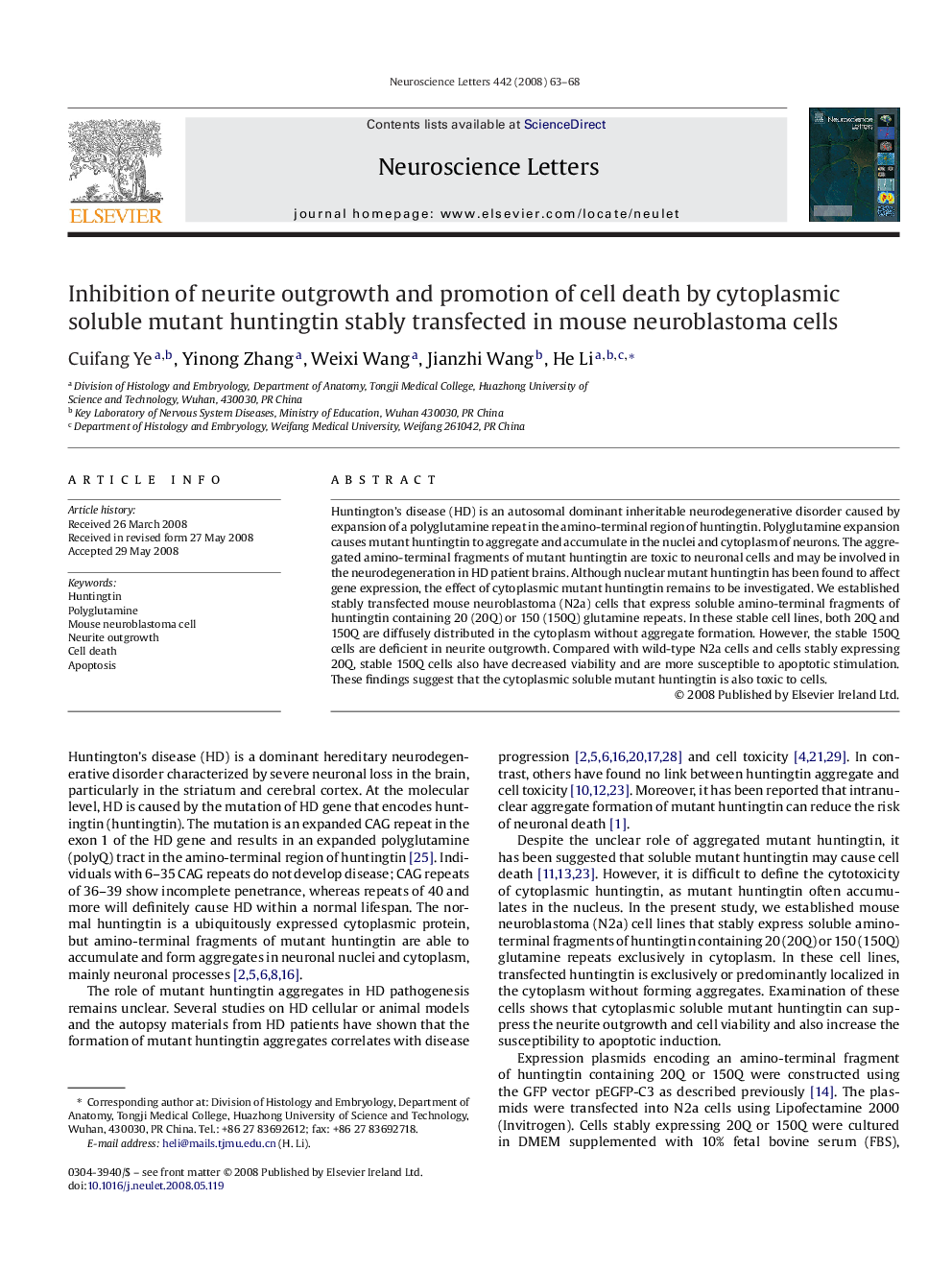| کد مقاله | کد نشریه | سال انتشار | مقاله انگلیسی | نسخه تمام متن |
|---|---|---|---|---|
| 4348028 | 1296873 | 2008 | 6 صفحه PDF | دانلود رایگان |
عنوان انگلیسی مقاله ISI
Inhibition of neurite outgrowth and promotion of cell death by cytoplasmic soluble mutant huntingtin stably transfected in mouse neuroblastoma cells
دانلود مقاله + سفارش ترجمه
دانلود مقاله ISI انگلیسی
رایگان برای ایرانیان
کلمات کلیدی
موضوعات مرتبط
علوم زیستی و بیوفناوری
علم عصب شناسی
علوم اعصاب (عمومی)
پیش نمایش صفحه اول مقاله

چکیده انگلیسی
Huntington's disease (HD) is an autosomal dominant inheritable neurodegenerative disorder caused by expansion of a polyglutamine repeat in the amino-terminal region of huntingtin. Polyglutamine expansion causes mutant huntingtin to aggregate and accumulate in the nuclei and cytoplasm of neurons. The aggregated amino-terminal fragments of mutant huntingtin are toxic to neuronal cells and may be involved in the neurodegeneration in HD patient brains. Although nuclear mutant huntingtin has been found to affect gene expression, the effect of cytoplasmic mutant huntingtin remains to be investigated. We established stably transfected mouse neuroblastoma (N2a) cells that express soluble amino-terminal fragments of huntingtin containing 20 (20Q) or 150 (150Q) glutamine repeats. In these stable cell lines, both 20Q and 150Q are diffusely distributed in the cytoplasm without aggregate formation. However, the stable 150Q cells are deficient in neurite outgrowth. Compared with wild-type N2a cells and cells stably expressing 20Q, stable 150Q cells also have decreased viability and are more susceptible to apoptotic stimulation. These findings suggest that the cytoplasmic soluble mutant huntingtin is also toxic to cells.
ناشر
Database: Elsevier - ScienceDirect (ساینس دایرکت)
Journal: Neuroscience Letters - Volume 442, Issue 1, 5 September 2008, Pages 63-68
Journal: Neuroscience Letters - Volume 442, Issue 1, 5 September 2008, Pages 63-68
نویسندگان
Cuifang Ye, Yinong Zhang, Weixi Wang, Jianzhi Wang, He Li,